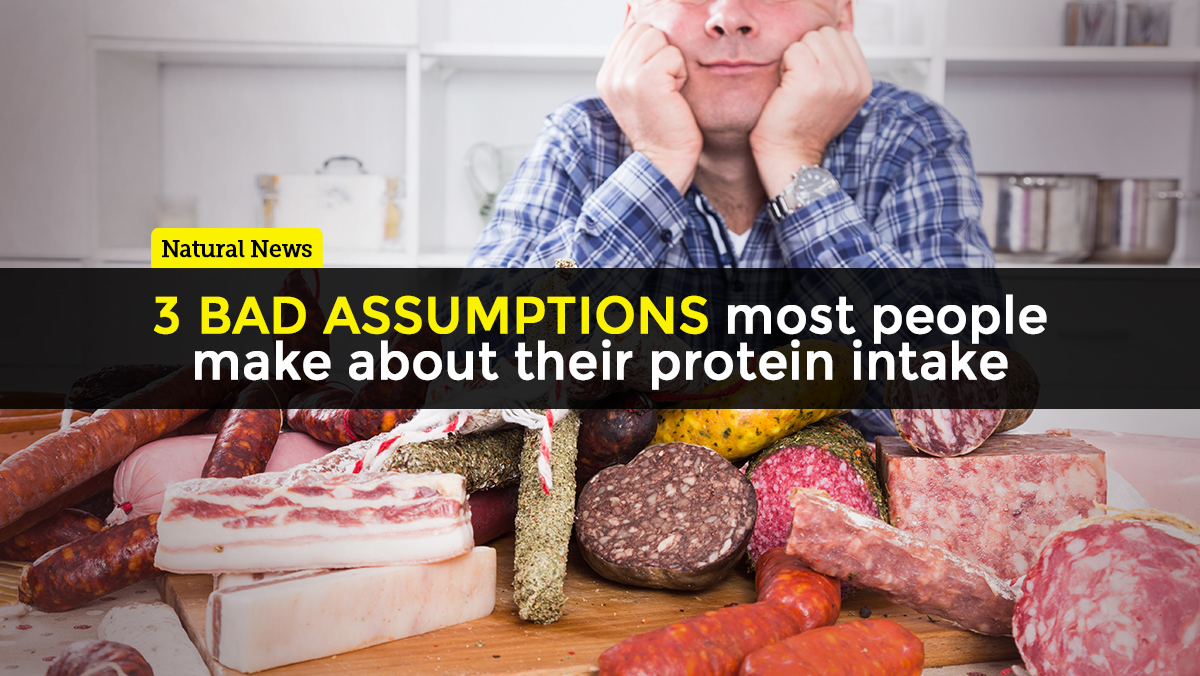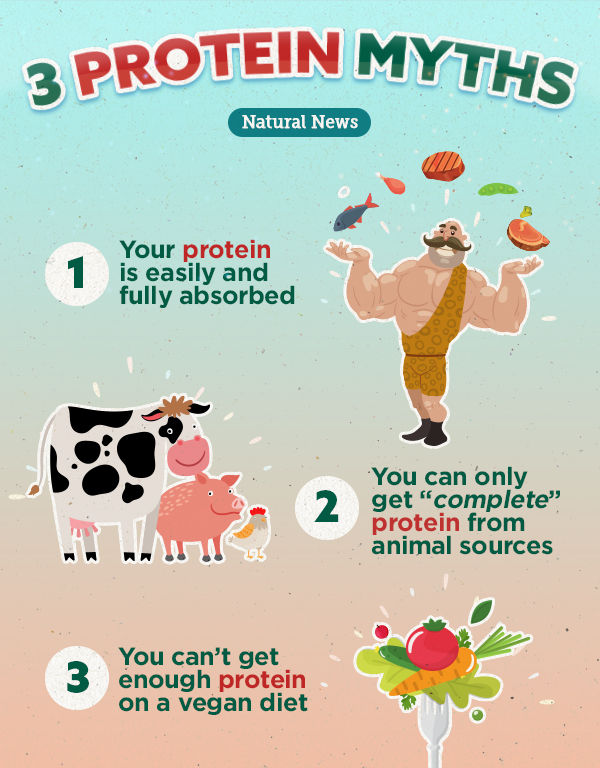Three health-altering assumptions most people make about their protein intake
10/09/2018 / By Derek Henry

The protein debate has been raging on for quite some time now, with people citing all kinds of “facts” about what levels of protein are required and which sources are the best. Vegans claim that you can get all the protein you need from plants, whereas meat eaters say that’s not possible nor advisable if you want to be strong and healthy.
Regardless of what side of the debate you are on, most people are making bad choices around their protein intake simply due to being educated by the protein powder industry. So if you want to make the most of your protein take, be sure to side step these three erroneous assumptions.
Myth#1) Your protein is easily and fully absorbed
One of the biggest assumptions made when choosing protein is that you’ll be getting every gram listed on the nutritional information. This is rarely the case, due to both the nature of the protein and your digestive capacity.
Take soy protein isolate for example. It has been the primary ingredient in protein products for decades, but we now know that the conventional (GMO) and unfermented version of it makes it a highly indigestible protein, so assimilation of it is compromised. Like a poorly produced and synthetic multivitamin, some of what you are ingesting is literally being flushed down the toilet.
The same could be said for many animal protein sources. Many people simply don’t have the digestive infrastructure (enzymes, probiotics) to properly digest animal proteins, let alone those that are raised conventionally and fed largely GMO diets from soy and corn, or other grains that have proteins proven to be hard on digestive systems (like gluten).

So if you take any protein powders with conventional soy or dairy or eat conventionally raised meat, chances are you are not absorbing it well, and are creating more digestive distress in the process.
Myth #2) You can only get “complete” protein from animal sources
An often cited point in the protein debate is that animal protein is a complete protein, whereas plants simply do not have that capability. This is a false assumption based on two points:
- There are plant sources of protein that are complete, such as chlorella, bee pollen, chia seeds, hemp, and quinoa.
- When you combine different plant proteins you can ensure you get a complete source of protein at any meal, like lentils and brown rice. There are many amino acids available in a plant-based diet which virtually guarantees that anyone on such a diet can meet their complete protein requirements.
In addition to that, our protein needs don’t need to be “complete” at each and every meal. What’s more important and relevant is to ensure that we get a complete variety of amino acids over time. There’s no magic in getting them all in a single meal.
Myth #3) You can’t get enough protein on a vegan diet
Many vegans, including body builders, have busted the myth that you can’t meet your protein requirements on a vegan diet. Of course, there are many factors to keep in consideration to ensure that someone gets enough protein on a vegan diet.
An initial consideration is your activity level, with sedentary people requiring about .8 grams of protein per kg of body weight, endurance athletes requiring about 1.2 to 1.4 grams per kg of body weight, and body builders needing between 1.4 and 2.0 grams per kg of body weight.
Another factor is the types of food you are eating and how rich in protein they are along with how easily they are digested. On a vegan diet, you will need to be aware of protein-rich plant foods to make sure you work them in regularly, and be aware of which sources are easier to digest so you can maximize absorption. If you don’t, you may run out of appetite before you get enough protein.
Some great sources of plant-based protein that are easier to digest include chlorella (58-75 percent protein), spirulina (51-71 percent protein), hemp seed (47 percent protein), chia seed (21 percent protein), bee pollen (25-40 percent protein), pumpkin seeds (25 percent), and quinoa (14 percent protein).
For more information on protein-rich plant sources, visit Superfoods.news.

In the end, everyone is free to choose their source of protein, but if they want more easily assimilated and health-promoting protein, it makes sense to incorporate some of the identified plant sources. This way you get more of the protein you want, along with other favorable nutrients that you can’t really get from animal sources, like fiber, enzymes, and antioxidants.
To get the highest quality vegan protein powder without the heavy metal contamination, try the Health Ranger’s Organic Hemp Protein Powder or Organic Gluten-Free Vegan Plant-Based Pumpkin Seed Protein Powder.
Sources include:
Submit a correction >>
Tagged Under:
complete protein foods, diet, lifestyle, nutrients, protein, protein powder, protein requirements, vegan
This article may contain statements that reflect the opinion of the author





















